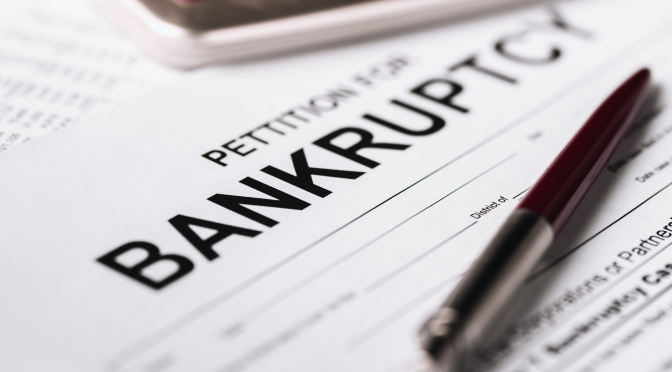Filing for bankruptcy is risky for most people, even small business owners. Most of the time, filing for bankruptcy is one of the last things you want to do—it can be a difficult and emotionally draining process. But it is a sign you have fallen on hard times, and it is time to take action and control of your financial situation.
If you are struggling to get on top of your debt, bankruptcy is a viable option for you to get out of debt in a way that you can build a solid financial foundation.
Bankruptcy filing — a.k.a. filing for personal bankruptcy — can be an extremely difficult and confusing process. For those who decide to file, it can be a way to get debt relief and start a financial chapter afresh. Filing for bankruptcy can also have serious consequences, not to mention the stigma that a person can carry for the rest of their life. There has been a lot of media attention this year on the bankruptcy process, and it has become an increasingly popular option for some.
What is bankruptcy?
Bankruptcy is a word used to describe a person who has found themselves in financial difficulty. This can happen for a variety of reasons, but it can be something as simple as a late payment on a credit card debt or as serious as a medical condition that makes a person unable to work. The difference between these two situations is that the person simply needs to pay off some credit card debt, while in the other, they may need to file for bankruptcy.
Bankruptcy is an option that is available for some people when their financial situation is too complex for them to handle on their own. Bankruptcy laws vary from state to state, with some states offering a full belly of options for those who are unable to pay their debts. However, in some states, bankruptcy is a last resort— not something you should routinely consider; you only do so when absolutely necessary.
Advantages of filing for bankruptcy:
Filing for bankruptcy is a way to get a fresh start, begin again, and create a stronger, more secure financial future.
Disadvantages of filing for bankruptcy:
Filing for bankruptcy can cause great losses to a person’s credit rating and can be demoralizing to clients, employers, and creditors.
Why do people file for bankruptcy?
There are several reasons people file for bankruptcy: Health problems, job losses, medical bills, home mortgages, and credit card debt are the most common reasons.
How long does it take to file for bankruptcy?
So, you’ve just filed for bankruptcy and are wondering how long does it take for the bankruptcy process to start? The answer is it depends on the type of bankruptcy you file for. The process begins with the court appointing a bankruptcy trustee. The trustee will then begin enforcing the bankruptcy, which includes collecting any unpaid debts from creditors and setting up a payment plan to pay off the debt.
How do you file?
The process of filing is called “bankruptcy” for a reason—it’s a form of protection from creditors. Under federal law, you cannot declare bankruptcy without declaring your intention to do so, and you must file a petition with the court to do so. The process of filing for bankruptcy is not automatic and requires careful planning.
So, what happens when you file for bankruptcy?
Bankruptcy is a fancy word for declaring that you can’t pay your bills anymore. It’s a label that can have many different effects on your life. For example, if you’re old and poor and can’t pay your bills, you will be asked to leave your house and move into a low-income housing facility. If you own a home, then you will be able to stay in it for a limited time, and you will be required to pay a certain amount of rent. There are also many complications that will affect your credit score and whether or not you will be able to buy a home again.
Disadvantageous things happen when people file for bankruptcy, but those who file for bankruptcy rarely feel those effects until long after the event. When you file for bankruptcy, you close yourself off from access to the court system, which is the body responsible for protecting your property rights. You no longer have access to the court system’s public record database, which contains information like credit reports and debtor property searches. In other words, when you file for bankruptcy, you no longer have a modern credit report.
